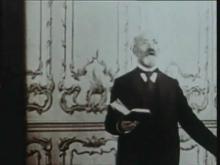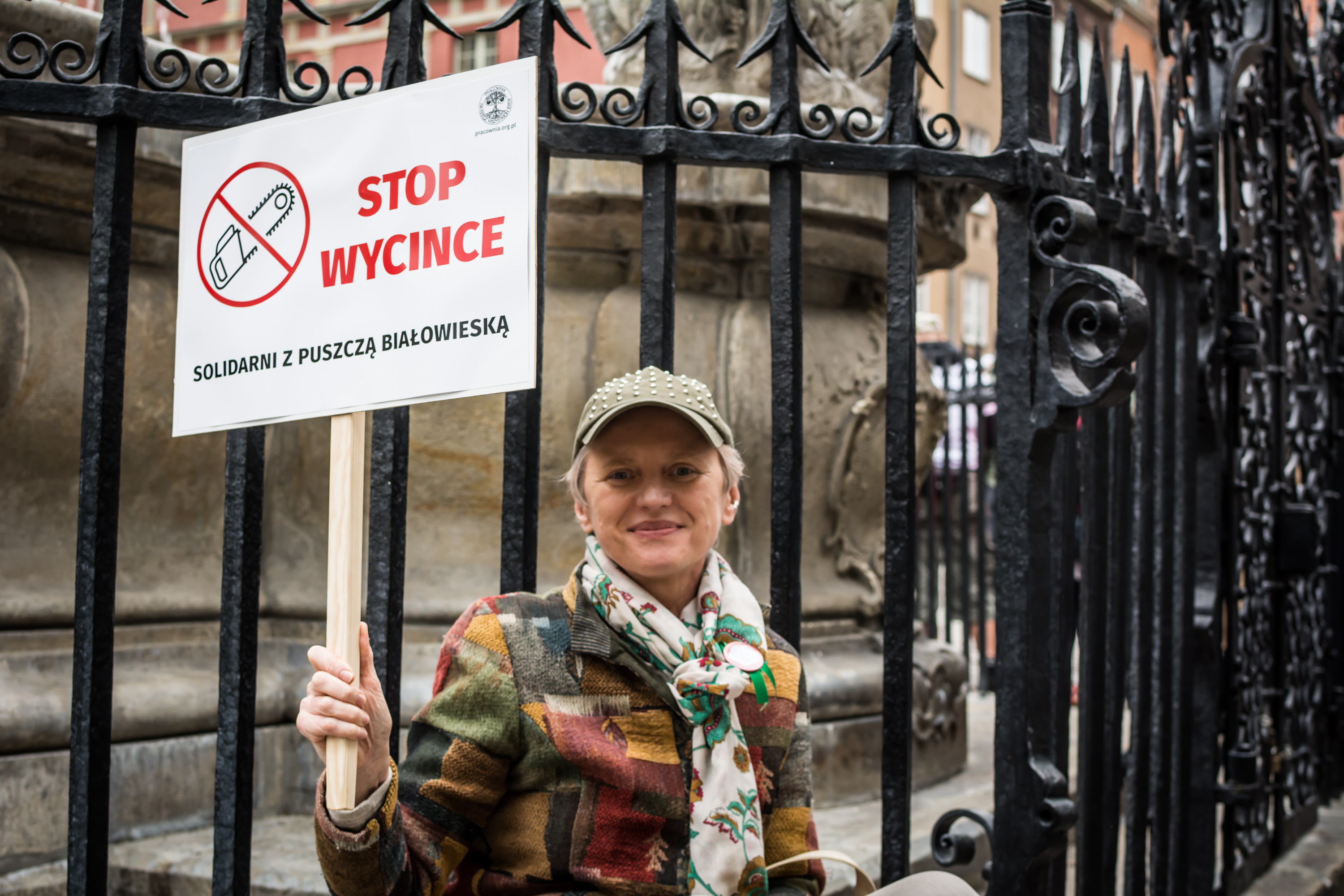
I remember the day following the elections. It was October, but the sky was clear, and the air was pleasant, with an eerie quality to it, as if the moment I’d turn my back a meteorite would hurtle from the sky to crush into my window.
B., a friend from work, stopped by to visit. “For the first day in a fascist country it doesn’t feel all that bad,” I said. This was meant to be a joke. Earlier in the day I had visited the farmers’ market, bought raspberries. In less than a week the parliament of owls would begin its nightly proceedings, spewing decrees. How did they manage to keep turning out all these amendments, memoranda, new laws, annulments of existing laws faster than anyone could ever read them? Before I’d wake up, people would already post the results of the Parliament’s nightly production on Facebook. Morning in morning out I’d copy these links into my private archive.
After six months, I have it all fairly well documented, our transitioning into an Eastern-European je ne sais quoi. I’m still doing it, adding links to the Polish Circus folder; I’m in May now. The Council for the Prevention of Racial Discrimination, Xenophobia and Related Intolerance was abolished right before the weekend of patriotic holidays, on Friday, April 27. Then, on May 3, the Constitution Day, we were told firmly and clearly that instead of following the constitution they want to change it.
In sync with these revelations a playwright was beaten to a pulp in Warsaw for standing up against the soccer fans to defend a Pakistani man. This becomes normalized, the news of another non-white person viciously attacked. The people who have lived among us for twenty years or so are falling victim to violence, while the president is signing decrees and turning speeches, and the bishops are blessing, blessing, and blessing. But some of us can stand up and get beaten up, too. I’m proud of us writers.
Earlier in the middle of April (Thursday, April 14), the district prosecutors in Katowice interrogated Jan Gross for 5 hours. I wonder why it had to take 5 hours to ask Gross if he “committed the crime of publicly insulting the nation” under Article 133 of the Criminal Law. Was that a glimpse of hope that he’d start contradicting himself? But the prosecutors said in their statement to the press that they were simply bound by law to act based on 166 individual citizen complaints. Jan Gross, they said, was interrogated merely as a witness. Meanwhile, the President is deliberating whether to strip or not to strip Gross of the Order of Merit. He will leave this question hanging until the end of his presidency, even though he could visit the Polish Center for Holocaust Research and educate himself.
Two new books by Polish scholars were published within the last two years on the same subject: the Poles benefitting from denouncing the Jews, perpetrating crimes, staging small-scale pogroms, etc. If these local writers do not face similar complaints, one expects that it must be so because the government sees no purpose as yet in making a case against them. Or else, is it because no one reads anything anymore? The complaint-mongers who brought this interrogation on Gross probably belong to the statistical 62% who didn’t read a single book last year. They represent the 20 million of cultural illiterates in this country. How dangerous is that?
Two days after Jan Gross’s interrogation, on April 16, the organization called National Radical Camp (ONR) held a rally in Białystok. It was Saturday, and international students visiting under the Erasmus program were warned not to leave the dormitories of Białystok Technical University for the whole day because a racist group was going to have their festivities on the campus.
These festivities started out with a celebratory mass in the cathedral. Pictures featuring banners with fascist symbols leaked out, and the diocese issued an official apology: “The church doesn’t support nationalism.” “However, anyone,” the diocese let out, “can ask for a mass to be celebrated in any good intention; for instance, for an anniversary.” And indeed that was an anniversary, the 82nd anniversary of the ORN’s formation in 1934. The city officials never apologized. Poland still seems to have the law that penalizes racism and anti-Semitism, but an investigation into the complex network of racist crimes in Białystok has just stalled due to the hiring-and-firing frenzy in the jurisdiction.
A bit of history then: the ONR, influenced by Italian fascism and remembered for its anti-Semitic excesses, was registered in April 1934. Its violent antics too much to bear for the seasoned interwar conservatives, it was soon outlawed, lasting mere 3 months, from April to July 1934.
Revived in 1993, the ONR struggled hard to be re-registered. At last one local chapter was reinstalled in 2003 under the condition that the present-day organization renounce its links with its prewar past.
Two marches the ONR organized in Warsaw for the Polish Independence Day in November 2007 and 2008 turned into battles. Anti-fascist activists and common citizens formed a human barrier holding the banner “Fascism won’t pass.” In 2008 some ONR members were caught with their hands extended in a fascist greeting. Brought to court, they insisted they were ordering a beer.
The turning point for the ONR was the invitation from the Arch-Cathedral of Sacred Family in Częstochowa for a celebratory mass on the occasion of the organization’s 75 anniversary on April 18, 2009.
In 2012 the ONR achieved its goal; since then it is officially registered.
The previous pro-EU government did not impede the ONR taking over the celebrations of the Independence Day in 2009 and 2010, inviting delegates from Hungary, Slovenia, Ukraine, and Bielorus, and so on, because the EU aficionados were most likely hoping to create a niche to release the citizens’ negative emotions, while they were busy drafting out “a low-cost country.”
In 2011 the Independence march organized by the ONR attracted 20,000 participants. This could have been a good reason to become concerned, but the pro-EU MPs were willing to sell their soul to the devil to stay in power. They probably also nurtured a secret hope they’d be able to negotiate their bailout.
Back to the present. A week after the events in Białystok, ten days after the interrogation of Jan Gross, on Friday, April 22, the government claims to see nothing wrong in including the ONR in its plans of forming the civil militia. One MP says: “They are a legal organization after all.”
The news about arming the ONR reach me as usual in the morning. It’s Friday and on an impulse I decide to visit the webpage of our local reformed synagogue. I had planned to convert some years ago but stopped myself for personal reasons. This time there seem to be nothing to stop me. In the evening I‘m sitting at the table set for Passover seder because I crave a community who understands what it means that the ONR is going to be armed. The Poles don’t really get it. Even when they are smeared as traitors by the government media, even if they are gay and afraid to come out to their families, it doesn’t occur to them that they could be hunted down by their own people, by their neighbors.
But the Polish Jews know it well. They retain this knowledge in their bodies even while singing Seder songs to merry tunes.
On, Monday, the third day of the Passover, the city board in Białystok votes to close down the Zamenhof Center.
Yes, that Zamenhof, the man who had a vision that all disagreements would cease once we start speaking in a common language, so he invented esperanto. The Białystok MPs substantiate their decision: “He is not really well-known in the world.” Suddenly, a carnival of willful idiocy sets off. Basking in reflected glory of the short-span TV attention, another MP observes that “Zamenhof was like Hitler because he, too, was a utopist.” This bestower of wisdom has never heard of Thomas Moore who coined the word “utopia,” the man determined enough to become a Catholic martyr. And this is all the news from Białystok, the new world capital of the White Power.
Before writing this blog I read Viktor Klemperer’s Diary of the Nazi Years 1933-1941 until he notes: “But everywhere complete helplessness, cowardice, fear.” Obviously, that’s different. No one is afraid. We carry on protests every week. Will it be a matter of months—or years?—before we witness this bubble of personal safety burst? Remember 1984, how easily bravado washes off in the face of physical violence, or even the fear of such violence.
So far the internet is streaming jokes and meme pictures commemorating the daily funnies spewed by our MPs in bubble-gum captions. Sometimes I can’t help but imagine how the government masterminds must hate being made a butt of a joke. If I were them, I’d start resorting to fantasies of public executions, anything, to end this incessant snickering, this tee-hee and haw-haw. But for now the anti-terrorism law will most likely put a lid on our merrymaking.
And the general conscription. That was announced in the last week of April, together with a bill proposed by the young nationalist MPs that will annul parental child support altogether by replacing it with shared custody. Because the bill is plainly stupid (no one knows how the shared custody can be carried on in case of parents living in two different cities or countries or, let’s say, in connection with the currently proposed limits on the abortion law: Will a rape victim be expected to share child custody with her rapist?), this legal concoction is likely to produce a lot of social frustration.
Social frustration, civil militia, and the army—that is all that this government needs.
Kempener writes: “I am constantly listening for ‘symptoms.’” Symptoms. I know how it feels to be attuned to symptoms, listening to the rumble of illness in your body attentively and yet not being able to do much about it. I’m sure he chose the word consciously. But then, I’m home, watching the cats play in the sun, listening to birds: it is so peaceful. That other stuff outside is like somebody else’s bad blood; it just doesn’t seem real.
I think I’d like to be Klempener, but I’m really Fiver from Watership Down. Fiver is a small rabbit, the smallest of the litter and endowed with ultra-sensory abilities. These abilities sometimes allow him to predict danger. While other rabbits nibble at grass and cowslip, Fiver goes about muttering that “something terrible is going to happen.” Sometimes he works himself into a veritable frenzy, despite how sweet the air and the grass are to his fur, and how pleasant living among friends and his loved ones must feel.





